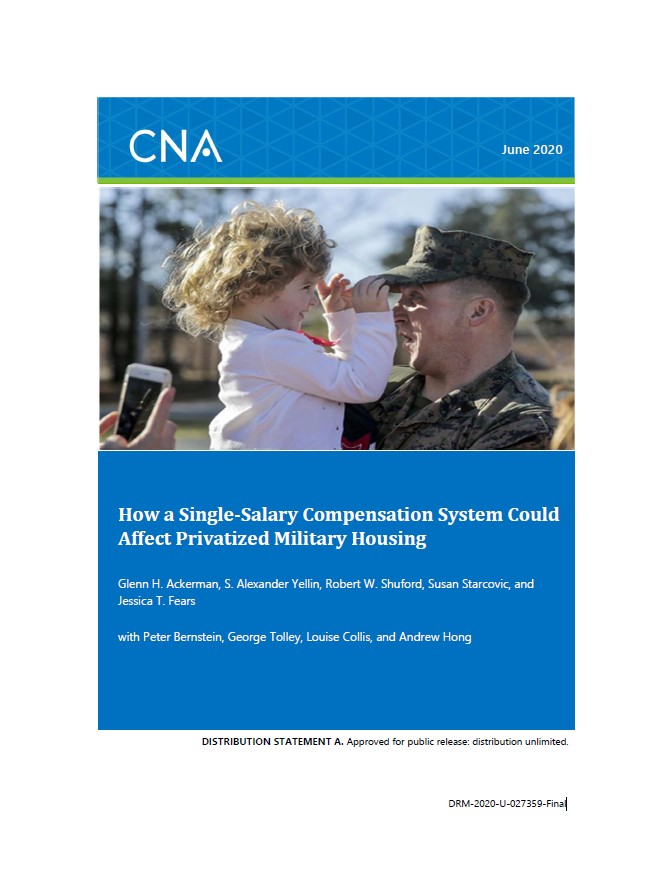The President tasked the Thirteenth Quadrennial Review of Military Compensation (QRMC) with examining whether the military should move to a single-salary system (SSS). An SSS would combine basic pay and allowances into a single, taxable compensation with no differences in the amounts paid to single and married servicemembers.
An SSS would have profound effects on many aspects of military life, including the services’ privatized family housing projects. These projects are typically complex, long-term contractual agreements between the military, private developers, and lenders. All of these agreements peg rents for active-duty servicemembers to their Basic Allowance for Housing (BAH). Under an SSS, BAH would no longer be calculated, so all of these privatization agreements would require renegotiation.
Legal ramifications
Representatives from the services’ general counsel offices disagreed about the difficulty of these renegotiations. The Army expected it would be challenging but feasible. The critical stakeholders would be the lenders. The Army projects have a few large lenders and many smaller ones. If deals could be reached with the larger lenders, that could set a template for the others.
The Air Force representatives argued that all Military Housing Privatization Initiative (MHPI) stakeholders would demand to renegotiate all provisions of the agreements. These simultaneous renegotiations could overwhelm their resources. The views of the Navy and Marine Corps were in between those of the other two services.
Eliminating BAH would affect more than those currently in the military. As part of its educational benefits, the Post-9/11 GI Bill, administered through the Department of Veterans Affairs, provides a housing benefit to students based on BAH rates for E5s with dependents. Most program beneficiaries qualify for a housing allowance, which accounts for the largest portion of expenditures.
Download reportDISTRIBUTION STATEMENT A. Approved for public release: distribution unlimited.
Specific Authority. To protect information not specifically included in the above reasons and discussions but which requires protection in accordance with valid documented authority such as Executive Orders, classification guidelines, DoD or DoD-component regulatory documents.
This work was performed under Federal Government Contract No. N00014-16-D-5003.
Details
- Pages: 60
- Document Number: DRM-2020-U-027359-Final
- Publication Date: 6/29/2020
